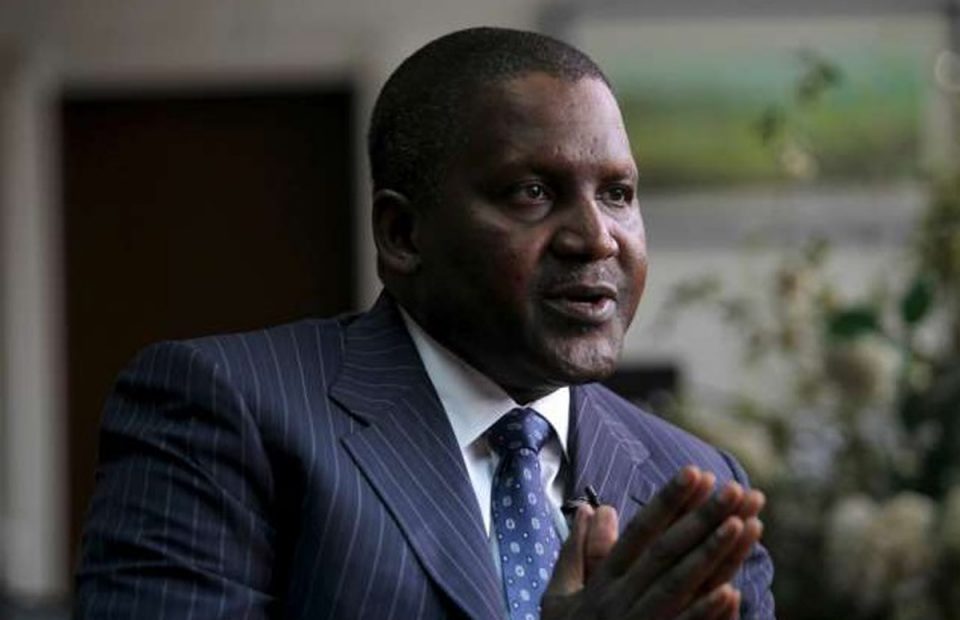On a peninsula east of Lagos, 30,000 workers are employed on a project that holds out the promise of transforming Nigeria’s economic fortunes.
It’s here that Aliko Dangote, Africa’s richest man, plans to spend more than his net worth of $13.5 billion building one of the world’s biggest oil refineries. If he succeeds, he could end the irony of Africa’s biggest oil producer importing $7 billion of fuel a year, and instead see it meeting its own needs and supplying neighboring nations.
The collapse in the oil price and Nigeria’s woeful track record on industrial projects are significant risk factors. Yet Dangote’s bet has the potential to revolutionize Nigeria’s economy, with its operations adding $13 billion, or 2.3% to gross domestic product, according to a 2018 estimate by Renaissance Capital. Central Bank Governor Godwin Emefiele has said that the project could employ more than 70,000 people when operational.
“Yes, the risks are high, the challenges are high,” said Devakumar Edwin, chief executive officer of the refinery complex, who’s worked with the billionaire for about three decades. “But the rewards are also high.”
The site is stacked with superlatives. Nigeria’s largest-ever industrial project, it boasts a distillation column for separating crude into various fuels at different temperatures that is the largest of its kind in the world. The 650,000 barrel-per-day refinery is just part of a $15 billion petrochemical complex that will also house a gas processor and the world’s biggest plant for ammonia and urea, which is used in making plastics and fertilizer.
Still, Nigeria’s previous attempts at motor fuel self-sufficiency have come to nothing. Its four state-owned refineries, opened in the 1970s, ran at a fraction of capacity before they were closed in January for a revamp.
An initial attempt by Dangote to enter the refining business foundered. In 2007 he bought one of the state plants only to see that privatization swiftly reversed by a new government.
Earlier efforts to use industrial development as a way of cutting the country’s dependence on oil have mostly fallen short. Nigeria has sunk at least $5 billion into the Ajaokuta steel mill project on the banks of the Niger River since 1979, and it still isn’t in production.



